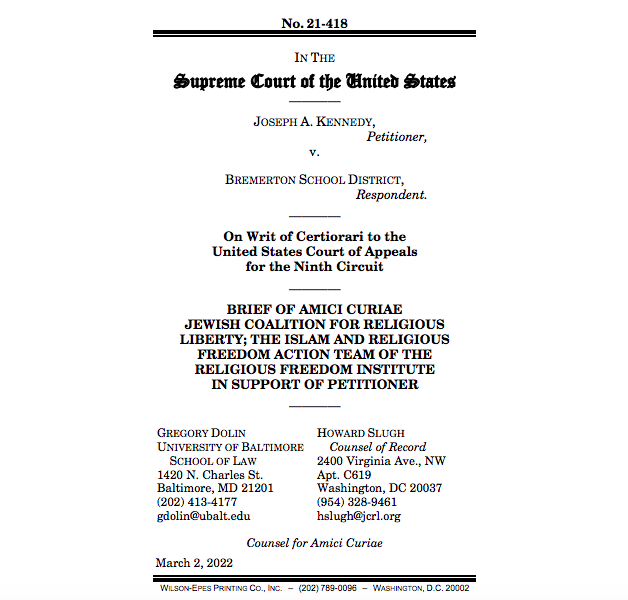Summary of facts: A high school football coach lost his job after he knelt at midfield after games to offer a quiet personal prayer. The coach sued in federal court, alleging that the school district violated his rights under the Free Speech and Free Exercise Clauses of the First Amendment. He lost in the trial court and the court of appeals affirmed.
RFI’s position: Adherents to Orthodox Judaism, Islam, and other minority faiths engage in public practices that may draw the attention of non-adherents. Uncommon practices are more likely to stand out or arouse curiosity, and therefore to be perceived as “visible to students.” The decision of the court of appeals would allow or even require public schools to ban such private religious conduct simply because of its heightened visibility. The Court should reverse the decision below and reaffirm that public school teachers are permitted to engage in private non-coercive religious conduct even if it happens to be visible to students.
Read the amicus brief here.
THE RFI BLOG

Myths of Religious Nationalism in America and Abroad

France’s Olympic Hijab Ban Violates International Law And Exacerbates Tensions

RFI Briefs USCIRF on Lessons from 25 Years of U.S. Designating Religious Freedom Violators

Thought Police: Protecting the People from Prayer

A Religious “Delaware”: Establishing a State Haven for Religious Corporations
CORNERSTONE FORUM

Challenges to Religious Freedom in Iraq and the Critical Need for Action

Public Bioethics & the Failure of Expressive Individualism

Religious Liberty in American Higher Education

Scotland’s Kate Forbes and the March of Secularism


